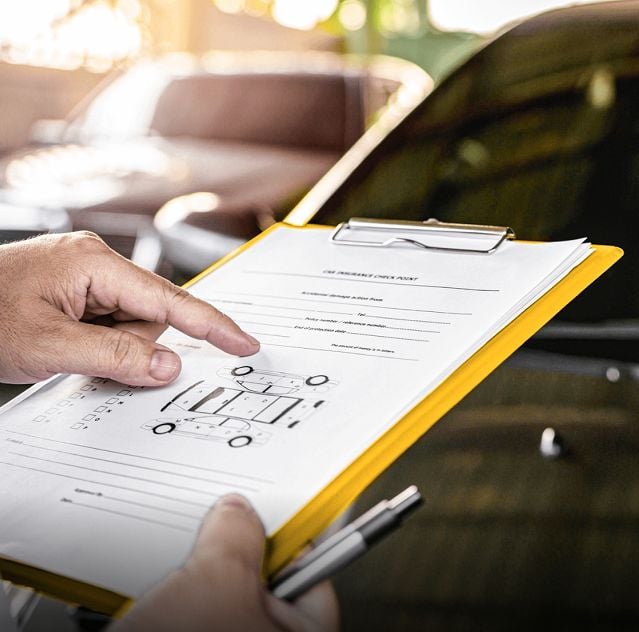

Prevent Scams When Buying Cars from Japan
Essential Tips and Tricks
Understanding the Japan Car Buying Scams
The Japanese car industry is known for its high-quality and efficient cars. However, like any other marketplace, it has its share of scams that unsuspecting buyers fall prey to. Understanding these scams is crucial to protect oneself from falling prey to them. Some prevalent scams include bait-and-switch tactics where you’re shown an attractive deal on a high-quality car but redirected to a less attractive offer once you decide to buy. Other scams involve hidden fees and costs that are not disclosed during initial discussions. One other is a deal that is too good to be true.
Avoiding Scams: Essentials Tips when Buying Japanese Cars
To avoid falling for these scams, there are some essential tips to keep in mind. Always research the seller or auction agent and make sure they have a valid physical address in Japan, credible online reviews, and a proper license to sell cars internationally. Avoid making full payment before receiving the vehicle, inspect photographs carefully, and insist on seeing all the necessary documentation before proceeding with the deal. If you don’t ask for things like the Shaken Paper copy or Export Certificate you are not looking after your future investment.
Detecting Signs of Scams in Purchasing Cars from Japan
Detecting scams can be tricky; however, there are signs you can look out for to save yourself from being scammed. These signs include suspiciously low prices, hidden costs, unresponsive sellers, lack of a comprehensive warranty (in some cases), and incomplete documentation. A significant red flag should be if the seller rushes you to make the payment or disregards your queries regarding the car’s history. Do not make full payment until the very last minute that you are 100% satisfied. Also, consider getting pictures from the port just prior to shipment with the chassis or VIN number.
A Comprehensive Guide to Avoiding Japanese Car Scams
To compile all the above information, your comprehensive guide should involve researching the seller and their authenticity, understanding how to read and interpret car documentation, understanding the car’s current value in the market, familiarizing yourself with common car scams, and never rushing into a deal. Make a short list for yourself and don’t be bullied by the dealer/car exporter. Also, look out for super large exporters that are NOT Japanese-owned as they tend to hire unlicensed workers and portray themselves as owning all cars they advertise. This is a hook-and-bait tactic to avoid. They may be located in Japan but many will have non-national employees earning small money to reap large rewards for the non-national employer.
Techniques on How to Detect Japanese Car Scams
Some useful techniques include doing your online due diligence checking for any scam reports involving the seller, looking for inconsistencies in documentation, asking specific questions about the car’s history, and seeking advice from experts if in doubt. Observe the techniques discussed already including a check sheet. If you are importing a car into Kenya, Tanzania, etc. you folk must take precautions from dealers/exporters as mentioned above.
We are not saying all exporters are crooks but there are some who will certainly take advantage of you if you are not aware and being aware is easier than not getting the car you initially purchased.
Preventive Measures: Prevent Scams on Buying Cars from Japan
Taking a proactive approach to protect yourself, always ensure the financial transaction process is secure and not making full payment until you have fully inspected the car in question are essential preventive measures. Further, seeking legal advice can provide an extra layer of security if you deem it necessary.
Decoding the Intricacies of Scams in the Japanese Car Market
To decode Japan’s car market intricacies, being aware of the common methods scammers use such as offering lucrative deals that seem too good to be true can be very useful. Consult with industry insiders to understand the workings of the market better. If you have doubts get online and see what others say. Sure some people don’t want to talk but others will happily.
Protect Yourself: Advanced Tips and Tricks to Outwit Scammers
Learning advanced tips such as asking for the car’s auction sheet, verifying the car’s export certificate, and other crucial documents can help outwit potential scammers. Never hesitate to walk away if you feel there’s something fishy about the deal. There is always another car in Japan!
Understanding the Legal Framework: Countering Scams in the Japanese Car Industry
To counter scams effectively, understanding the Japanese legal framework dealing with car scams can empower you further. For instance, the “Lemon Law” protects consumers against cars that fail to meet quality and performance standards. However, that law does not mean shit, to put it bluntly, once a car is exported from Japan as there are no real fixed rules in place. So it’s up to you the buyer to take precautionary steps.
Case Study: Real Stories of Japan Car Buying Scams
Hearing about real stories and experiences from others can also help you prepare better. Detailed case studies – including how the scam took place, how it was identified, and what steps were taken afterward – offer valuable practical insights. Get online as we discussed.
Final Tips for a Safe and Fraud-Free Car Buying Adventure in Japan
Lastly, some final tips include always securing your finances safely, never rushing into a deal, ensuring all documentation is complete and verified by third parties, conducting comprehensive research about the seller, and finally, maintaining an open communication line with sellers to detect any potential red flags. Lastly, get a check sheet and do your own due diligence.
Table of Contents
ToggleAdd a comment Cancel reply
Categories
- Auto Detailing (5)
- Car News (54)
- Car Reviews (48)
- Classic Cars (26)
- Importing Rules By Country (5)
- Japan Car Auctions (5)
- JDM (18)
- Uncategorized (23)
Recent Posts
About us

I am not one for writing articles actually so most of these articles come from contributors that I have met over the years or with a little help of supporters.
If you have any desire to import a car from Japan or simply need some advice get in touch via Whatsapp here at +81-90-5400-6384
Looking For That Special Car Has Never Been Easier.
Finding the right car in Japan is not always easy and finding the best partner in Japan to help you with this is sometimes even harder.
With over 25 years buying history and great contacts all over Japan I can help you in every way.
Get hold of me today!
Popular Tags
Related posts


30 Upcoming Blog Titles


Japanese Used Cars for Sale, Quality, Value, and Easy Import Guide


Water Damaged Cars






